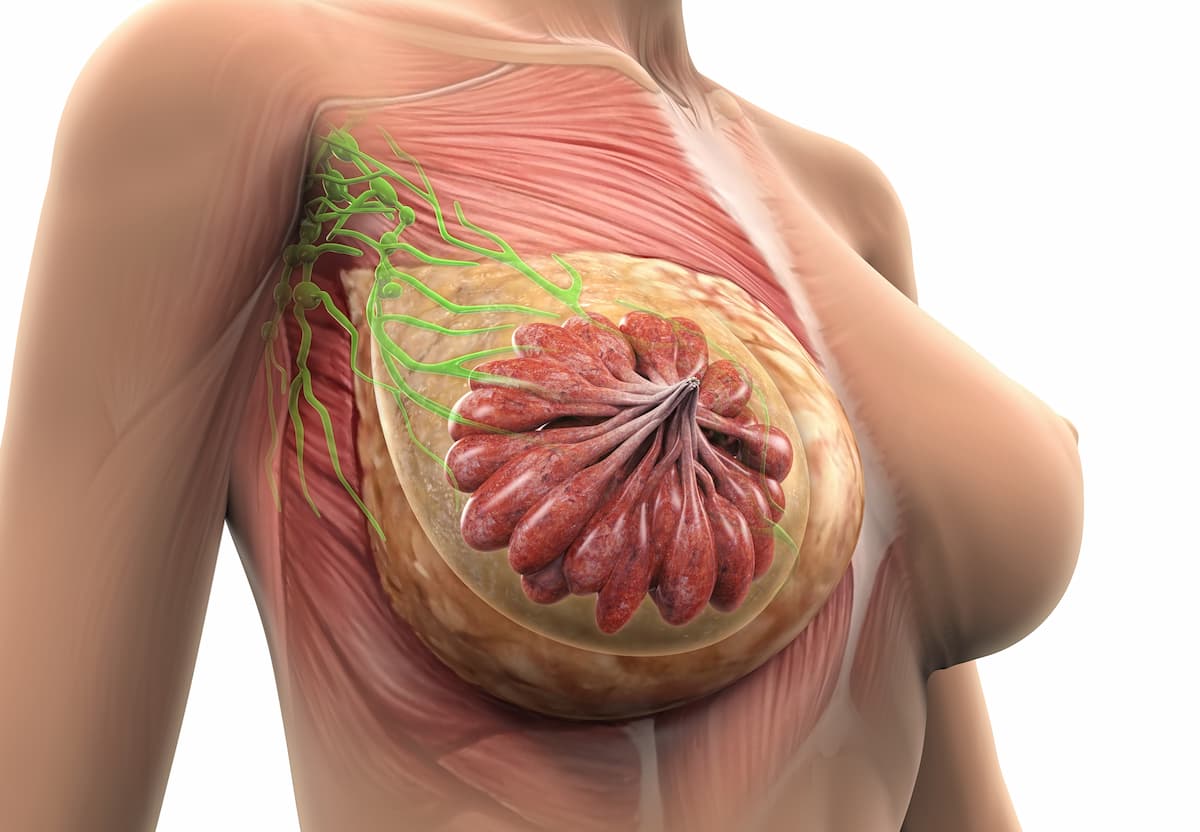Dato-DXd Shows Improved Tolerability Vs Chemo in HR+/HER2– Breast Cancer
Safety data further support datopotamab deruxtecan as a new treatment option in metastatic hormone receptor–positive, HER2-negative breast cancer.
"These data further support dato-DXd as a potential new therapeutic option for patients with previously treated, inoperable or metastatic HR–positive, HER2-negative breast cancer," according to Komal Jhaveri, MD, FACP.

Datopotamab deruxtecan (dato-DXd) reduced the incidence of high-grade treatment-related adverse effects (TRAEs) compared with chemotherapy among patients with previously treated, inoperable or metastatic, hormone receptor (HR)–positive, HER2-negative breast cancer, according to safety analysis findings from the phase 3 TROPION-Breast01 trial (NCT05104866) presented at the 2024 European Society for Medical Oncology (ESMO) Breast Cancer Annual Congress.
With a median treatment duration of 6.7 months and 4.1 months with dato-DXd and investigator’s choice of chemotherapy, respectively, the rates of grade 3 or higher TRAEs were 20.8% vs 44.7% in each arm. Additionally, 20.8% and 30.2% of patients from each respective arm had a dose reduction following TRAEs, and toxicity leading to dose interruptions occurred in 11.9% and 24.5%.
“These data further support dato-DXd as a potential new therapeutic option for patients with previously treated, inoperable or metastatic HR–positive, HER2-negative breast cancer,” Komal Jhaveri, MD, FACP, section head of the Endocrine Therapy Research Program, clinical director of Early Drug Development Service, and the Patricia and James Cayne Chair for Junior Faculty at Memorial Sloan Kettering Cancer Center, said in a presentation of these data.
In the open-label, international phase 3 TROPION-Breast01 trial, patients were randomly assigned 1:1 to receive dato-DXd at 6 mg/kg intravenously every 3 weeks (n = 365) or investigator’s choice of chemotherapy (n = 367). Treatment choices in the chemotherapy arm included eribulin mesylate, vinorelbine, gemcitabine, or capecitabine.
The trial’s dual primary end points were progression-free survival by blinded independent central review per RECIST v1.1 guidelines and overall survival. Secondary end points included objective response rate (ORR) and safety.
Patients with HR-positive, HER2-negative breast cancer who received 1 or 2 prior lines of chemotherapy in the inoperable or metastatic setting were eligible for enrollment on the trial. Other eligibility criteria included having disease progression on endocrine therapy and an ECOG performance status of 0 or 1.
Additional analysis showed that AEs of special interest (AESIs)—including oral mucositis or stomatitis, ocular surface toxicity, and adjudicated drug-related interstitial lung disease (ILD)—were found to be low grade and manageable in the dato-DXd arm.
Any-grade treatment-related mucositis or stomatitis affected 55.6% of patients in the dato-DXd arm, with grade 3 events reported in 6.9%; the median time to onset was 22 days, and the median time to resolution was 36.5 days. Additionally, 13.3%, 1.4%, and 0.3% of patients had dose reductions, interruptions, and discontinuations following these toxicities, respectively. Investigators managed these toxicities with daily prophylaxis using a steroid-containing mouthwash as well as prophylactic cryotherapy.
Any-grade and grade 3 ocular surface events, respectively, occurred in 40.0% and 0.8% of patients who received dato-DXd. The median time to onset was 65 days, and the median time to resolution was 67 days. Rates of dose reduction and/or interruption and dose discontinuation due to this toxicity were 3.3% and 0.3%, respectively. Based on toxicity management guidelines, investigators mitigated these ocular surface events by using artificial tears daily and recommending that patients avoid contact lenses.
Regarding adjudicated drug-related ILD, any-grade and grade 3 or higher events were reported in 3.3% and 0.8% of patients, respectively, in the dato-DXd arm. The median time to onset was 84.5 days, and these events resolved at a median of 28 days. Events leading to dose reductions, interruptions, and discontinuation, respectively, occurred in 0.3%, 0.8%, and 1.4% of patients.
Any-grade hematological toxicities of interest in the dato-DXd arm and chemotherapy arms, respectively, included neutropenia (10.8% vs 42.5%), anemia (11.1% vs 19.7%), and leukopenia (7.2% vs 17.1%). Of note, grade 3 or higher neutropenia occurred in 30.8% of those in the chemotherapy arm. Investigators administered granulocyte colony stimulating factor to 2.7% of patients in the dato-DXd arm compared with 22.1% of those who received chemotherapy.
Other any-grade TRAEs of interest in patients who received dato-DXd and chemotherapy, respectively, were nausea (51.1% vs 23.6%), diarrhea (7.5% vs 12.3%), alopecia (36.4% vs 20.5%), and peripheral neuropathy (3.6% vs 13.7%). These toxicities were mitigated with anti-emetic agents given before dato-DXd infusion and on subsequent days whenever necessary.
Reference
Jhaveri K, Bardia A, Im S, et al. Datopotamab deruxtecan (dato-DXd) vs chemotherapy in pretreated, inoperable/metastatic HR+/HER2– breast cancer: additional safety analysis from TROPION-Breast01. Presented at the 2024 ESMO Breast Annual Congress; May 15-17, 2024; Berlin, Germany. LBA2.